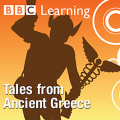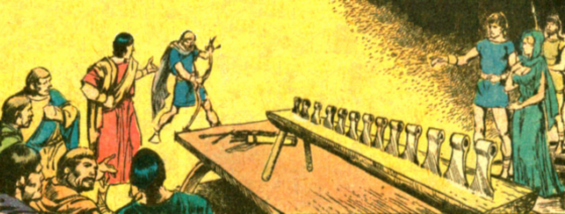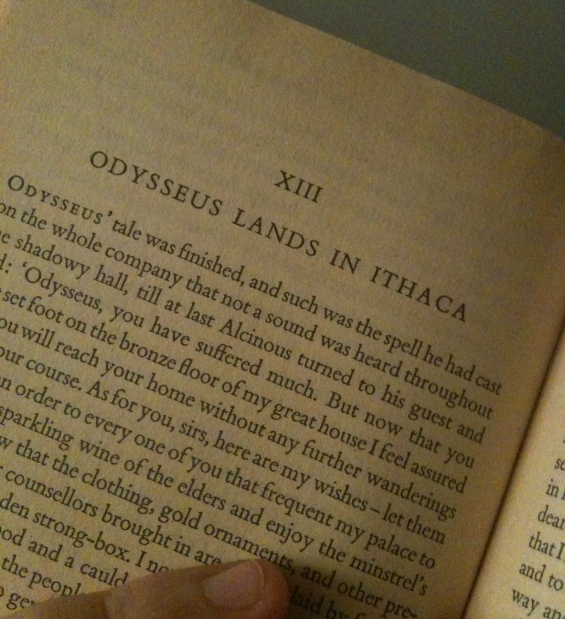
 Ilium (Ilium #1)
Ilium (Ilium #1)By Dan Simmons; Narrated by Kevin Pariseau
From the towering heights of Olympos Mons on Mars, the mighty Zeus and his immortal family of gods, goddesses, and demigods look down upon a momentous battle, observing—and often influencing—the legendary exploits of Paris, Achilles, Hector, Odysseus, and the clashing armies of Greece and Troy.Thomas Hockenberry, former 21st-century professor and Iliad scholar, watches as well. It is Hockenberry’s duty to observe and report on the Trojan War’s progress to the so-called deities who saw fit to return him from the dead. But the muse he serves has a new assignment for the wary scholic, one dictated by Aphrodite herself.With the help of 40th-century technology, Hockenberry is to infiltrate Olympos, spy on its divine inhabitants…and ultimately destroy Aphrodite’s sister and rival, the goddess Pallas Athena. On an Earth profoundly changed since the departure of the Post-Humans centuries earlier, the great events on the bloody plains of Ilium serve as mere entertainment.Its scenes of unrivaled heroics and unequaled carnage add excitement to human lives devoid of courage, strife, labor, and purpose. But this eloi-like existence is not enough for Harman, a man in the last year of his last 20. That rarest of post-postmodern men—an ‘adventurer’—he intends to explore far beyond the boundaries of his world before his allotted time expires, in search of a lost past, a devastating truth, and an escape from his own inevitable ‘final fax.’ Meanwhile, from the radiation-swept reaches of Jovian space, four sentient machines race to investigate—and, perhaps, terminate—the potentially catastrophic emissions of unexplained quantum-flux emanating from a mountaintop miles above the terraformed surface of Mars.
If someone were to describe this book to me (if they even could), I don’t know if I would believe how much I absolutely enjoyed it. Dan Simmons is a mad genius.
Shakespeare-quoting humanoid robots, Greek Gods, post-humans, and old-style humans somehow make the craziest awesome story imaginable.
Ilium is a story told through essentially three unrelated viewpoints. First, there’s Hockenberry. This is told in first person. Hockenberry is called a “Scholic,” a human from our the 20th century (our time) who was rebirthed in a future where Homer’s Trojan War is being fought. His job is to report on the war … to the Greek Gods.
At first, this is completely confusing. Why? is a question I asked myself over and over, but it begins to make sense with time. Plus, it’s hard not to be fascinated with the events of the Iliad. It’s also impressive how much research went into it, though that’s only an assumption since my knowledge of the Trojan War is essentially from the movie, Troy (but I have read the Odyssey!).
The second viewpoint is the humans, mainly Daemon. Daemon is a self-involved fool who is unlikeable to say the least. But who wouldn’t be when you have everything handed to you on a silver platter by robots called servitors (sp – I did listen to the audio so forgive me), like all humans everywhere. Pleasure is their life, knowledge … is lacking.
The third viewpoint is that of a sonnet-loving humanoid robot called a “moravec” and named Mahnmut. Specifically, and only, Shakespeare’s sonnets. It’s work consists of exploring the moon of Jupiter called Europa. Mahnmut is called in on a mission with a group of moravecs to explore some occurrences on the planet mars.
At first, I was highly entertained, though confused, with the events of the Trojan war and the other parts were just above boring. Slowly, the story takes hold and it had me hook, line, and sinker.
Listening to the audiobook, I was looking forward to my morning and evening drives and not too sad to do errands on my lunch hour either. Somehow, it ALL makes sense even though it sounds like the oddest collection of classics to make up a cohesive story all its own. What does Shakespeare have to do with the Iliad or Proust (his work makes appearances too) for that matter, all set in the future with technology that gives humans everything they ever want or need?
It’s crazy I tell ya. Crazy! How did I like this book this much? I’m telling you, Simmons is a mad genius. I will just sit back and let him take me on his journey. It’s amazing. I question not.
Kevin Pariseau is the narrator of this audiobook and while at first I thought he over-acted the part of Hockenberry, though somehow not the other parts, I really grew to like him and found out that it was literally just the character of Hockenberry that he was playing. And it’s impressive given how many Greek words and names he’s got to …erm… name.
The only problem is that Ilium is only half the story. It stops at a huge cliffhanger and I’m already heading to Olympos to see how this ends.
5 out of 5 Stars (Mind … blown)
Posted by Bryce L.











